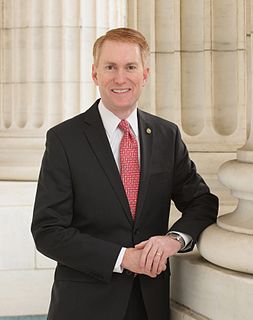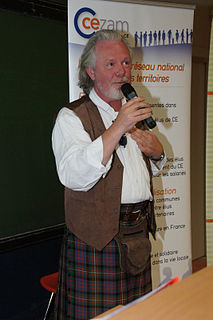A Quote by James Lankford
Centralized national decision-making on education reduces the role of the parent and the local districts.
Quote Topics
Related Quotes
I would like to dissolve the $10 billion national Department of Education created by President Carter and turn schools back to the local school districts, where we built the greatest public school system the world has ever seen. I think I can make a case that the decline in the quality of public education began when federal aid became federal interference.
We have emphasized the importance of applied action research because it allows evidence-based policy and program development and a focus on learning. We are also committed to using a participatory approach in which local people, local program managers and providers, local researchers, women's health activists, and national decision-makers play the leading role. International "experts" from technical assistance agencies or universities can make important contributions, but they certainly don't have all the answers.
The Germans, for example, have some kind of compromise between single-member and broader districts. In Israel, you have nothing, you have only a national election. You have no local districts at all. And that's because of the idea that in addition to other ideological differences, locality matters. The question is does the congressman represent his district and the interests of his district? And as I said there's quite a variety of systems the democratic world. The implications need to be examined.
An early attempt at education choice was charter schools. These were meant to attract the best and brightest students and provide them a level of education they often could not find in their local school districts. The problem is that, of the thousands of charter schools, many are outright failures.
Most of our competitor nations around the world have a national education system and America is the only major nation in the world that operates off of local school boards. They receive very little direction from state boards of education or from the nation. So local school boards direct basically what happens and too often they're not willing to track or to do the supervision of the education system that will make it world competitive.
The hardest problems of all in law enforcement are those involving a conflict of law and local customs. History has recorded many occasions when the moral sense of a nation produced judicial decisions, such as the 1954 decision in Brown v. Board of Education, which required difficult local adjustments.

































